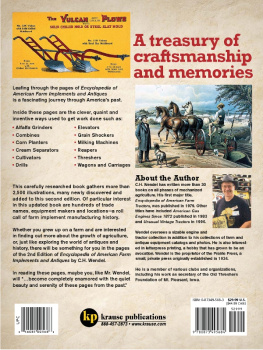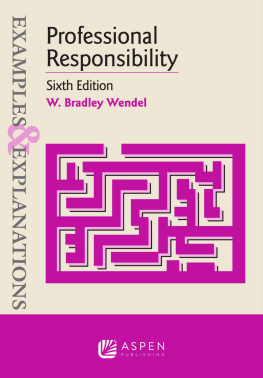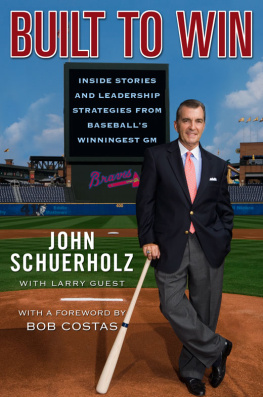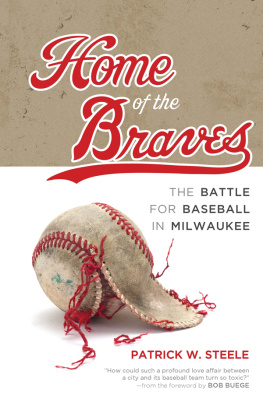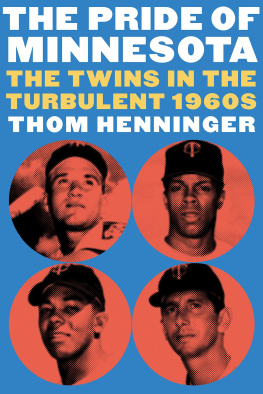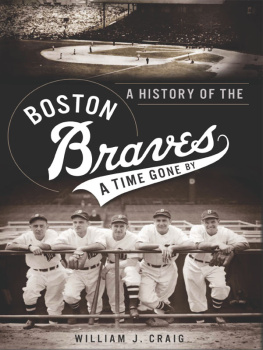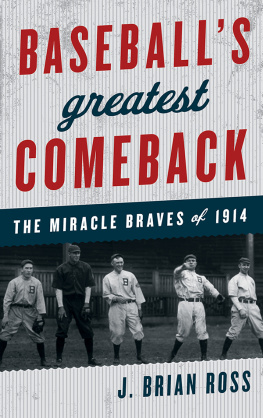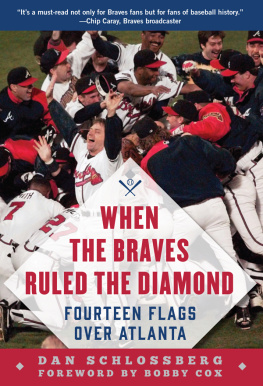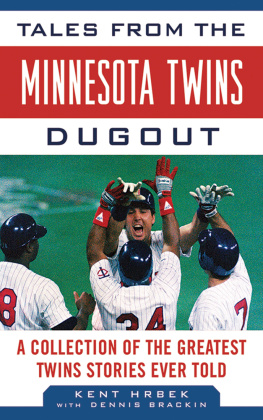Down to the Last Pitch
Also by Tim Wendel
NONFICTION
Summer of 68: The Season That Changed Baseball, and America, Forever
High Heat: The Secret History of the Fastball and the Improbable Search for the Fastest Pitcher of All Time
Buffalo, Home of the Braves
Far From Home: Latino Baseball Players in America
Going for the Gold: How the U.S. Olympic Hockey Team Won at Lake Placid
The New Face of Baseball: The One-Hundred-Year Rise and Triumph of Latinos in Americas Favorite Sport
FICTION
Castros Curveball
Habana Libre
Red Rain
My Man Stan (a novel for young readers)


Copyright 2014 by Tim Wendel.
All rights reserved.
No part of this publication may be reproduced, stored in a retrieval system, or transmitted, in any form or by any means, electronic, mechanical, photocopying, recording, or otherwise, without the prior written permission of the publisher.
For information, address
Da Capo Press,
44 Farnsworth Street, 3rd Floor,
Boston, MA 02210.
Editorial production by Lori Hobkirk at the Book Factory.
Designed by Anita Koury.
Set in 10.6 point Chronicle by The Perseus Books Group.
First Da Capo Press edition 2014
Cataloging-in-Publication data for this book is available from the Library of Congress.
ISBN: 978-0-306-82277-3 (e-book)
Published by Da Capo Press
A Member of the Perseus Books Group
www.dacapopress.com
Da Capo Press books are available at special discounts for bulk purchases in the U.S. by corporations, institutions, and other organizations.
For more information, please contact the Special Markets Department at the Perseus Books Group, 2300 Chestnut Street, Suite 200, Philadelphia, PA 19103, or call (800) 810-4145, ext. 5000, or
e-mail .
10 9 8 7 6 5 4 3 2 1
For Jacqueline, Sarah, and Chris
In memory of Bill Glavin, John Douglas, and Eric Wendel, and to the backyard ballgames of yesteryear on Canal Road and the West Bluff
CONTENTS
In 1991 Verlyn Klinkenborg came out with a book entitled The Last Fine Time. It was the story of his father-in-law, Eddie Wenzek, who once operated a family-owned tavern on the east side of Buffalo, New York. I grew up in Lockport, New York, only forty minutes away, and Buffalo was once the big city for me. Its where I saw my first baseball game, taken by my grandfather, along with my younger brother, Chris, to War Memorial Stadium, aka The Rockpile. Although many of the scenes from The Natural were filmed here, The Rockpile would never be mistaken for any of the sports palaces of today. As my uncle Brock Yates once wrote, the ballpark looks as if whatever war it was a memorial to had been fought within its confines.
No matter how many rough edges may be involved, I believe that every era, every life, for that matter, has a last fine time. It can be a brief moment or two when everything comes together in a remarkable way, and even when the world again barrels ahead, intent on reinventing itself once again, we can hold tight to such memories.
When I look back at baseball, which I have written about for several decades, the 1991 season remains for me one of the last fine times. That season was the beginning of Baseball Weekly, a new publishing venture at USA Today. I was fortunate to be on the original staff there, and in 1991 I covered my first World Series, and doing so gave me an inside look at the sea changes that were changing the game foreversoaring team payrolls, an approaching labor storm, the rise of retro-style ballparks and the corporate groupthink in which too many believed that everything could be fixed by firing this guy and hiring somebody else.
The 91 season marked the first time that a cellar dweller went from last to first place when the Atlanta Braves and Minnesota Twins rose from the ashes to play each other in the World Series. And what a showdown it was. Experts rank it among the top World Series ever played, and many consider it the best ever.
We always enjoy a story with a beginning, middle, and an end. Perhaps such elements become even more precious in the age of Face-book and Twitter, when so much comes at us so quickly and sometimes with misguided intent. A tale that happened out there, somewhere in the not-so-distant past, can be reassuring to us. So lets start somewhere near the beginning thenonly a few blocks from the banks of the Mississippi River. Even though the late October winds funneled down the wide avenues of downtown Minneapolis early in the day, inside the Hubert H. Humphrey Metrodome conditions remain comfortably warm and ear-splittingly loud.

SATURDAY, OCTOBER 19, 1991
AT HUBERT H. HUMPHREY METRODOME
MINNEAPOLIS, MINNESOTA
As the hometown Twins took the field, the sellout crowd broke into another sustained roar. Clamorous and downright chaotic, the rising earsplitting din could have been a beast reawakening after a long sleep.
As shortstop Greg Gagne jogged out to his position, he decided the fans were as loud as they had been in 1987, the last time the Twins played in the World Series. They just had to be. The fans were ready to raise a ruckus and wake up the echoes of yesteryear. The best home-field advantage in sports had been brought back to life again, with the promise of another wild ride in the offing. Now, would the hometown team be able to do its part?
As Gagne took his position for the top of the first inning, he thought about how much the Twins lineup had changed in recent years. Sure, such Minnesota favorites as Kent Hrbek and Kirby Puckett were still among the regulars, but besides those two stars, only Gagne, Randy Bush, Al Newman, Dan Gladden, and Gene Larkin remained from the last World Series team, and Larkin had somehow stayed on the postseason roster despite a bad knee, leaving him barely able to run. Here in the infield of hard-bounce Astroturf, with only dirt cutouts around the bases, Gagne was flanked by a pair of relative newcomers on this night. Scott Leius had taken the place of Twins favorite Gary Gaetti at third base. Gaetti, a.k.a. The Rat, now played in California. To Gagnes left stood another rookie, Chuck Knoblauch. Even though the sparkplug of a kid had led first-year American League players in hits, doubles, and RBIs, the hands-down favorite to win rookie-of-the-year honors, no one knew how he would react when things became fickle and unpredictable, as they surely would with so much at stake. After all, this was the World Series, with everybody watching, and like any good story, nobody dared predict the ending or who would be the hero or the goat.
One last time Gagne glanced at the fresh faces to either side of him, everyone now ready for the first pitch, and he could only smile at how baseball workedso cutthroat one minute, in need of team unity the next.
What people forget is that both of themChuck Knoblauch and Scott Leiuswere originally shortstops, he said years later. They came into the organization playing my position, looking to take my job.... But the thing with baseball, once things are decided, you pick yourself up and do your best. I mean, what choice do you have? Either of those guys, Knobby or Leius, wanted my job back in the spring. But it didnt matter. Now we had to come together and try to beat a really, really good Braves team.
Next page

